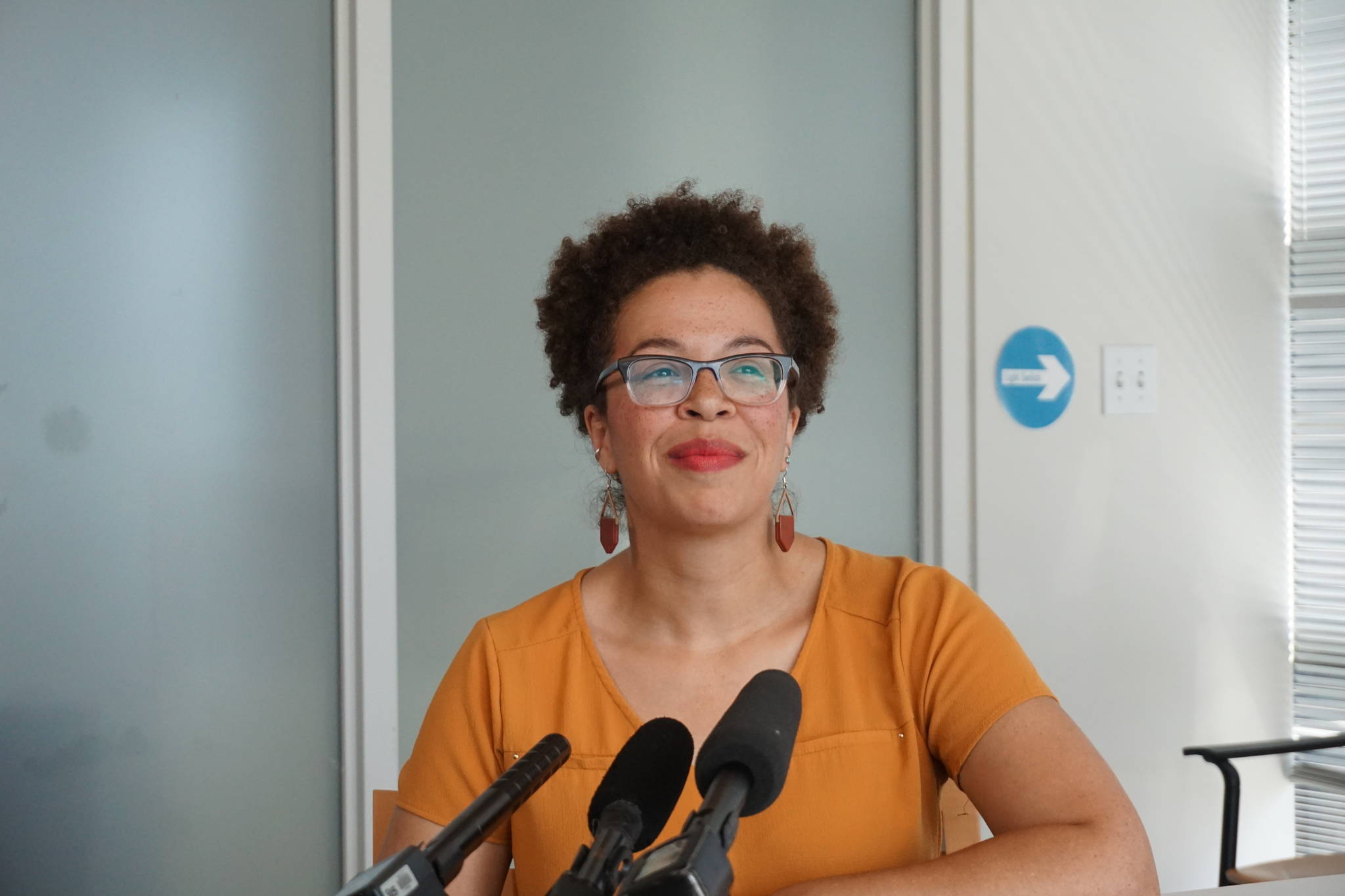When Councilmember Kirsten Harris-Talley talks about homelessness—which she does a lot as she pursues more funding for housing in Seattle and an end to the current sweeps policy—she doesn’t use the word “homeless.”
Instead, she uses the word “houseless.”
“Houslessness is a big priority for me,” she said after she was appointed to the council. On Monday, during a council briefing, she invited her colleagues to join her in a one-night camp-out scheduled for people who “have not experienced houselessness.” “People who are houseless aren’t sitting around eating bon bons,” she said Wednesday during a discussion of her and Councilmember Mike O’Brien’s proposed business head tax for paying for homeless services (h/t to erstwhile SW reporter Casey Jaywork for that last quote.)
Far from a linguistic tick—like saying “soda” instead of “pop”—Harris-Talley makes a conscious effort with the word choice, one that she says corrects a misperception about those living outside.
Harris-Talley says she first learned the term “houselessness” earlier this year. “I was sitting with some activists in front of the taqueria in the Central District,” she recalls. “I used the term ‘homeless’ and one of the people I was with said, ‘Actually, I prefer the term “houselessness.”’ That’s the moment it gelled for me.”
The point of the term, she says, is to “get more contextual about what we’re talking about.”
“It’s rooted in an understanding that not everyone has a house, but everyone has a home. Whether that home is a box or a tent,” she says. “For me it adds the context that, what we’re talking about is helping folks find a more permanent house.”
Talley-Harris is a critic of Seattle’s current sweeps policy. She says that the act of forcing people to move their tents is made easier if we ignore the fact that those tents represent homes.
“Switching from ‘homelessness’ to ‘houselessness’ provides a frame on one of the many reasons I find the sweeps problematic,” she says.
Homeless advocates have taken notice of Harris-Talley’s diction.
“She’s certainly the most public figure I’ve noticed making a point to say that,” says Katie Wilson, General Secretary of the Transit Riders Union, which is working on the Housing for All effort. “I can see the rationale: If you say ‘homeless,’ whatever structure they’ve created to shelter themselves is devalued. It makes it seem like less a big deal to move them.”
Others in the community are not as convinced of the word’s value. In surveying advocates about the word, I was forwarded an email by one prominent advocate. This person, who is by no means a fan of the sweeps policy, was nonetheless not on board with “houselessness.”
“To quote Mean Girls, ‘It’s time to stop trying to make “fetch” happen,’” this person wrote. “…This is a twenty-five year-old minority movement debate that has never received much traction. In my opinion, this sort of language policing is a distraction.” (I’m not naming the person because the email was not in direct response to me, but forwarded to me from someone else whom I had queried.)
Those tuned in to City Hall are sure to hear the word, along with “homeless,” a lot more in coming days, as a series of events are scheduled to mark the two-year anniversary of former Mayor Ed Murray’s declaration of emergency on homelessness. To mark the anniversary, there will be the aforementioned camp out at City Hall to show support for those sleeping outside. The camp out will start Nov. 1 and run from 4 p.m. to 9 a.m. There will also be a collection for supplies like diapers, feminine hygiene products, and clean socks and underwear.
The event, Harris-Talley says, will allow for “moments of understanding and conversation” about the current crisis—whatever word you use to describe it.
news@seattleweekly.com









